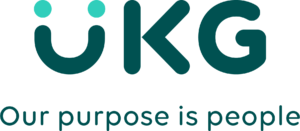View the entire newsletter for more articles: 2022 – NJAC County Biz – November
by Cameron Cushing, Intern Industry Marketing for UKG
Awareness of the need for Diversity, Equity, Inclusion, and Belonging (DEI&B) initiatives has exploded in recent years, with the private sector leading the way on implementation. But how can public sector organizations adapt to be more representative of the communities that they serve? And what’s the science behind DEI&B, both in origin and impact?
The Need for DEI&B
In a new webinar, Dr. Jarik Conrad – Executive Director of The Equity at Work Council by UKG® – explains that human evolutionary tactics spanning back to hunter-gatherer days impact how we behave in our lives – and at work – today. One of our most hard-wired evolutionary priorities is to seek gratification and safety, such as through membership in a tribe. While effective for hunting prey and avoiding extinction, tribalism – the tendency to form groups of like-individuals – has survived to the present day, with development beginning in children as young as nine months old. For example, children can begin to recognize race at a young age, and develop racial biases by three to five years old. Left unchecked, tribalism and its associated biases can remain hardwired into adulthood and be the root of inequitable actions, both conscious and not.
Our brains also work to keep us safe from information that might cause psychological distress, sometimes at the expense of the truth. In a study asking individuals to identify statements as either factual or an opinion, the majority of people could not correctly classify all ten statements. Studies also suggest that accuracy decreases over time as our beliefs become more deeply ingrained, making it more challenging to alter them.
DEI&B at Work
Successful DEI&B initiatives challenge ingrained belief systems to offer a work environment where everyone is on more equal footing. They are also critically important for the public sector, as correcting a lack of diversity can dramatically increase trust with the communities that public organizations serve.
So, what have organizations been doing to further DEI&B efforts? Pre-pandemic, the private sector began pivoting from a shareholder- to a stakeholder-centric model, in which the needs of all the organization’s stakeholders are considered, rather than an exclusive focus on the bottom-line. The proliferation of Corporate Social Responsibility (CSR) initiatives is indicative of this trend, and immensely important: nearly 70% of millennial employees say that it is a major factor in their workplace satisfaction. Research shows that employee productivity increases when engagement and satisfaction are high, pointing to HR and economic benefits. A recent UKG Workforce Institute report indicates that public sector organizations are beginning to follow suit, such as by creating DEI officer roles.
To better bridge the gap between science and practice, The Equity at Work Council by UKG sponsors DEI&B research, produces actionable tools and resources for the public, and shares thought-leadership pieces – because UKG believes workplaces should be free of inequities across the employee experience for all people.
Want to learn more?
Click here to watch the full webinar featuring Dr. Jarik Conrad and Erika Sandoval in which they discuss the foundations of modern DEI&B and what UKG is doing to advance new research and practices.

